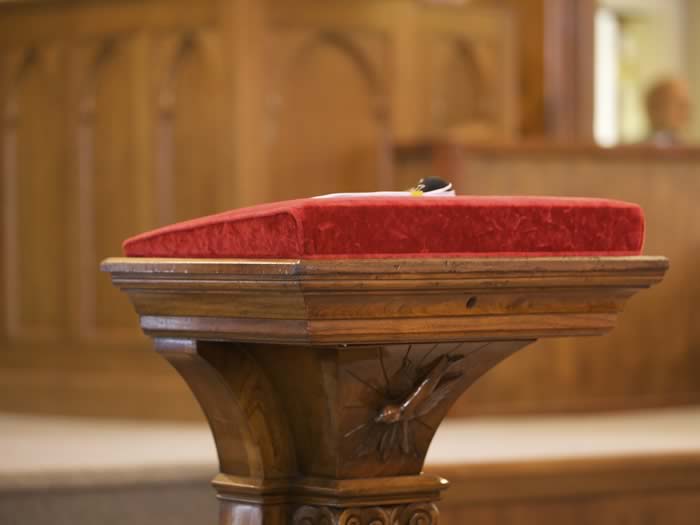Readings :
Acts 4:5-18
I John 3:16-24
John 10:11-18
Without too much effort, I find a point of connection between these three readings.
Let’s look at them.
John 10:7-18
Why was the image of a shepherd and his sheep such a powerful one for Jesus? It was of course part of the world he knew, but whilst he and his mission are described in over fifty different images in the N.T., this is the one that was particularly remembered and has been an evocative one for Christians ever since. I’ve been looking some of the many paintings of the Good Shepherd on the internet – loads of them, with Jesus a saintly tall bearded figure in flowing robes, sometimes cuddling a little lamb.
But looking after sheep was a tough and dangerous job in biblical days. It was a 24 hour job and shepherds could be rough characters themselves, even the good ones. Their power may have been limited to a particular role, but it was total.
If in biblical times you were a young boy and were asked what you wanted to do when you grew up and you chose this job, it could have been a worrying time for his parents. ‘Think of something else, love : baker, or a mason or even a priest, but not a shepherd; we’d never know where you were. It was a tough and lonely job. Sheep were a prime commercial commodity and for any good shepherd protecting the flock was a major responsibility.
Sheep needed good pasture but good shepherding as well. You had to be resourceful and if necessary powerful, defending yourself and your sheep against thieves who were out for an easy picking.
During those ‘lost’ years when he worked in his father’s joiners shop, Jesus must have devoted himself to prayer and reading the Jewish scriptures, and done a lot of thinking. I’ve counted over 60 references to shepherds and their flocks in the O.T. and most of them by the prophets, notably the prophecy of Ezekiel, who was as visionary as any of them and wilder than most. The 34th chapter is all about sheep and those who should but sometimes don’t shepherd them. Ezekiel rails against shepherds, who feed themselves, clothe themselves in sheep wool, slaughter the fatlings but don’t feed the sheep. Because you have done such a bad job, says the Lord God through the prophet’s voice, I’ll do it myself. Scattered I will find them. Hungry, I will feed them and the injured I will heal. Wild animals will be banished from the land. The trees will yield fruit and the earth vegetation, and the sheep will live in safety.’ He ends with the firm statement ‘You are my sheep, the sheep of my pasture, and I am your God’.
Jesus will have read those words. A moment of recognition perhaps as he read ‘’I will seek the lost, and I will bring back the strayed and I will bind up the injured and I will strengthen the weak. But the fat and the strong I will destroy. I will feed them with justice.’ God will be the shepherd’ says the prophet. Jesus may have said to himself, ‘is that what I am’ ? By whatever means he has this deep insight into the truth of who he is and his unique relationship to God and what he has to do with his (short)life. The Good Shepherd. A pastoral image but a powerful one as well. As near to God himself as makes no difference.
2. Acts 4:5-12
So with that in our minds, let’s look at the story from the second of this morning’s readings. ‘I will feed them with justice’? Well here’s justice or at least the holders of power who should be exercising justice. Here they are, all of them, the elders, the scribes and the priests – the whole funny family lot of them, the grisly crew holding on to what power the Roman authorities have allowed them to keep, keen to exercise it in a case they fear may result in public disorder – something the authorities in all times and places fear most. John and Peter had been speaking to a huge crowd, many of whom seem to be convinced by their preaching as they had been moved by the healing.
And, they are ‘ordinary and uneducated men’! say the powerful.’ Only people like us, extra-ordinary and schooled in the scriptures, can argue with their peers’,. Jesus alive was problem enough, now dead it should have been the end of it, but here his ideas are resurrected (as his followers believe the man himself has been). And the dangerous person confronting them and speaking? A fisherman from Galilee! You couldn’t get more ordinary than that. The assembly of the great and the not so good, and they are sorted out by an artisan from the country who should know his place but doesn’t.
So, a clash between the privileged and the powerless, between position and disposition. An immense problem for the powerful who rule by the book. And here is a situation that is without precedent for the fathers of the faithful, and there is no room for it in their rule book. Luke who probably is the author of Acts tells us that Peter spoke with the power of the Holy Spirit. That’s where his courage and eloquence came from. The story in Acts goes on to explain the predicament the authorities found themselves in – someone ill had been made well, and Peter and John – the heroes of the day – refuse to be muzzled. They are not open to any deal. ‘Well at least keep quite about it’ is the lame ending to the story, and the apostles say,’ no way’ –whether it is better to listen to you than to God you will have to judge’. The powerful elite who control religion lose their authority and crumble into an embarrassed silence.
What respect do you have for authority? Our local Council, delicately balanced between the two majority parties. The Coalition government –selling off civic and national responsibilities to companies whose first interest is to make money for their shareholders. The Police. The City. Bankers. The Bible – important for what is there but important too for how we read it. Our Church Council. The Methodist Conference. ‘Them’. And what happens when you strongly disagree with the people who have power? Especially if you believe their power is misused, what do you do then?
Some old friends visited us a little while ago and we were remembering some of the protests we had been involved in – a few marches, some public meetings and letters to the press (we still do a bit of that). One or two victories perhaps, but mostly unsuccessful protests. Have we given up, we asked each other?
Have you given up? That hymn which I was taught to sing when a small child –
Jesus bids us shine
With a pure, clear light,
Like a little candle
Burning in the night.
With a pure, clear light,
Like a little candle
Burning in the night.
In this world of darkness
So let us shine You in your small corner and me in my mine’
So let us shine You in your small corner and me in my mine’
Is that what we are reduced to? ‘You in your small corner’. Finding a place to hide and looking out at the world, shining, but sheltered.
3. I John 3:16-24
How we regard God is so important; how we think of him; as essentially who he is. Loads of images of God in the bible and many of them to do with power – with authority again. But the heart of God as we understand it is that he is loving. He- is -loving, full stop. It is his nature. That’s him. That’s not news to us. That’s what we celebrate when we are together as a worshipping congregation. O.K. we need to be reminded of it now and then, but not as if we have ever thought otherwise. We may take it for granted, lean on it, snatch it as a right – and that’s all bad, which is why it’s not out of place for us to make our confessions when we are together as we are now. We are judged by such love, challenged by it, but the truth that it is there, is the confidence at the centre of our faith. And his love is for the world.
As a congregation we are now based in a community new to most of us that we have to learn and respond to. We had a little rehearsal of that when some of us were angry (love is often angry) at what seemed to be the inevitable closure of our local secondary school which is a focus of community in this often disadvantaged part of the city. Politicians and the parents did most of the campaigning but it was a cause near to the heart of many of us. And it was a campaign that was successful and I for one am sorry that only by becoming an academy could the school be saved. But it was a sort of victory for justice. There is this wonderful phrase we heard from the bit of the first letter of John, ‘Loving not in Word or speech but in truth and action’.
Most of us know each other fairly well, by character and by face. But there is something else that holds us which is more than friendship and habit and it is, though we are not often bold enough to say it, the presence and the power of the Holy Spirit. The extra that is more than our personalities, more than we see and know, and which is indeed spiritual and comes from God himself. So easily the word can slide from our lips without engaging our minds. Let’s look forward to our celebration of the day of Pentecost with a sense of our own need to be owned and empowered by God.
We have been thinking about power. The tough, pastoral power of looking after people as the Shepherd cares for the sheep.
The power that can confront those who misuse their authority, shaming them to repentance and a recognition of their own weakness.
And the power of love; love from the spirit of God shared amongst us.
Powerful people? Us lot? Yes. Yes. Embrace it. Take hold of it. Put it to work.





